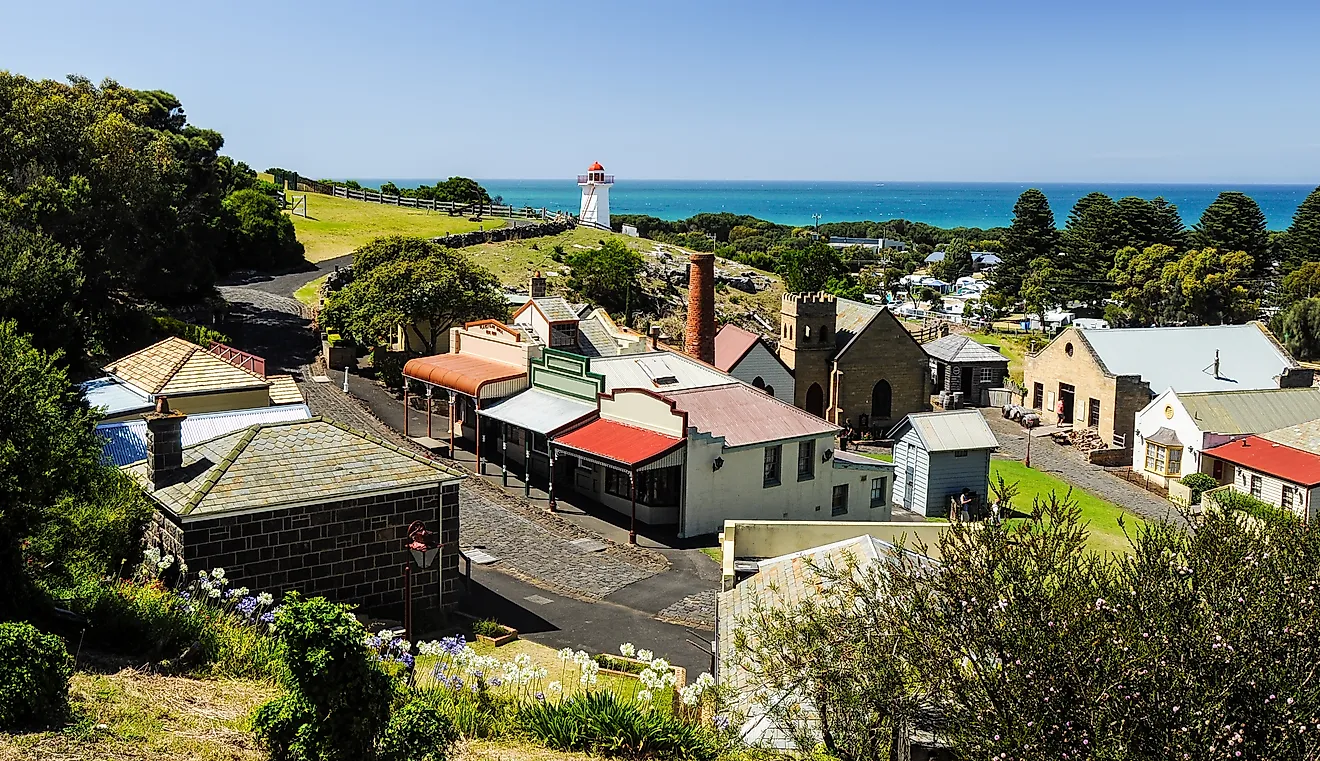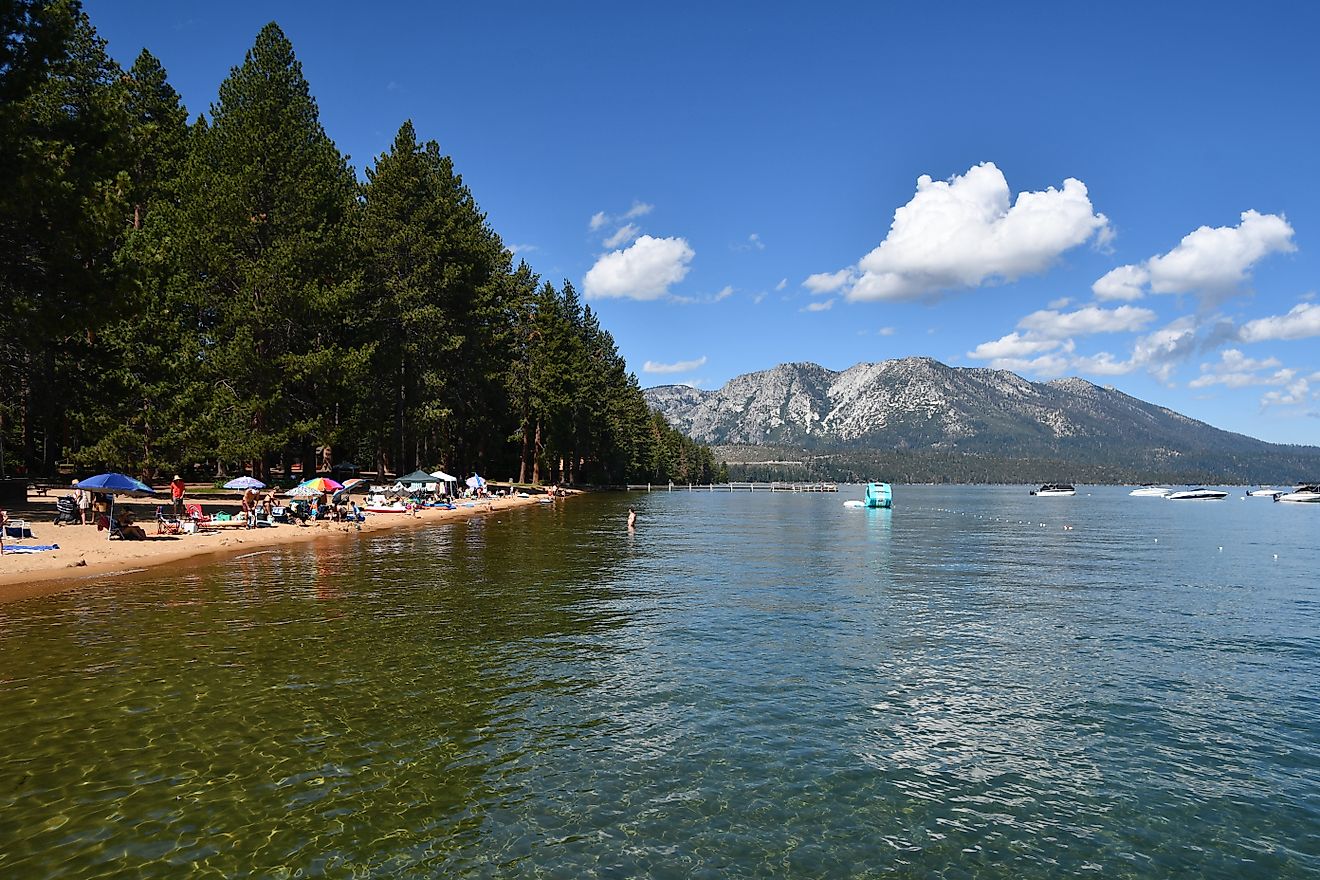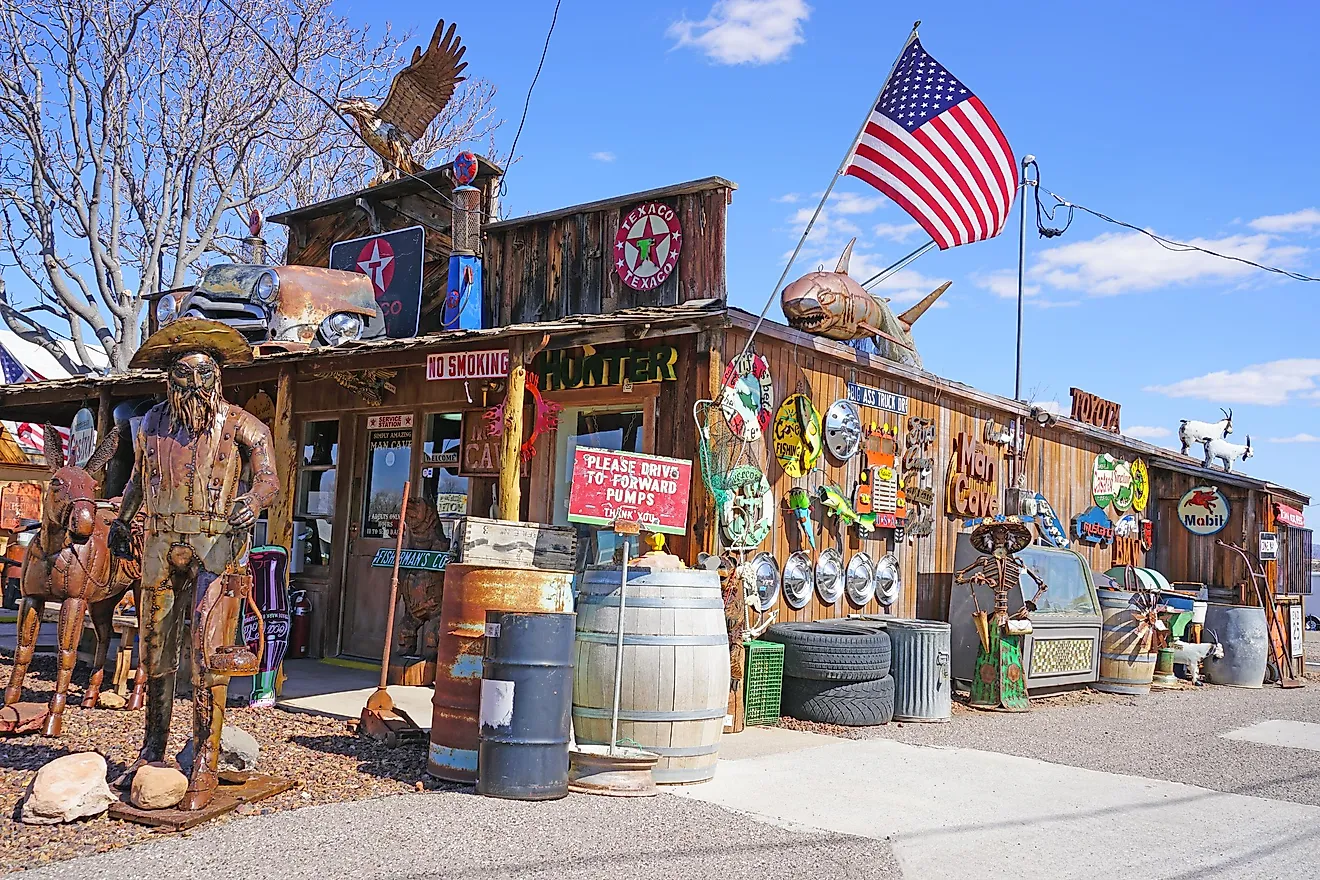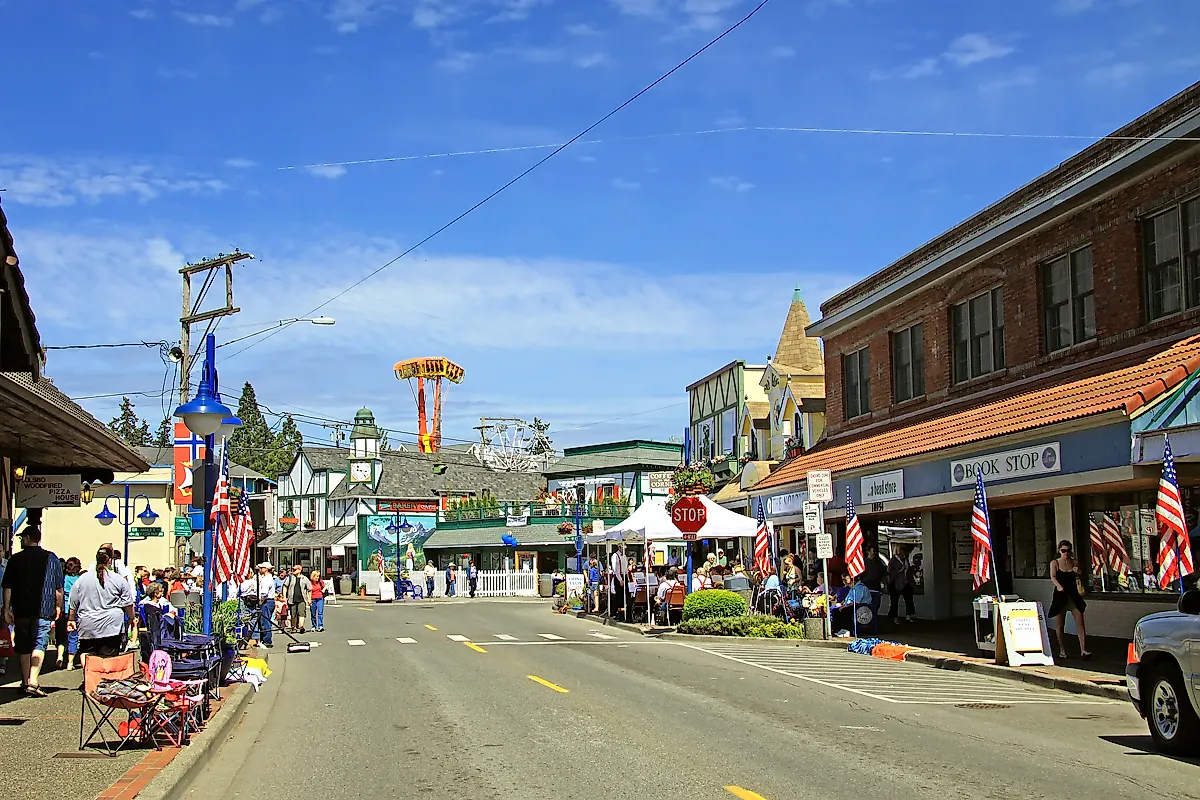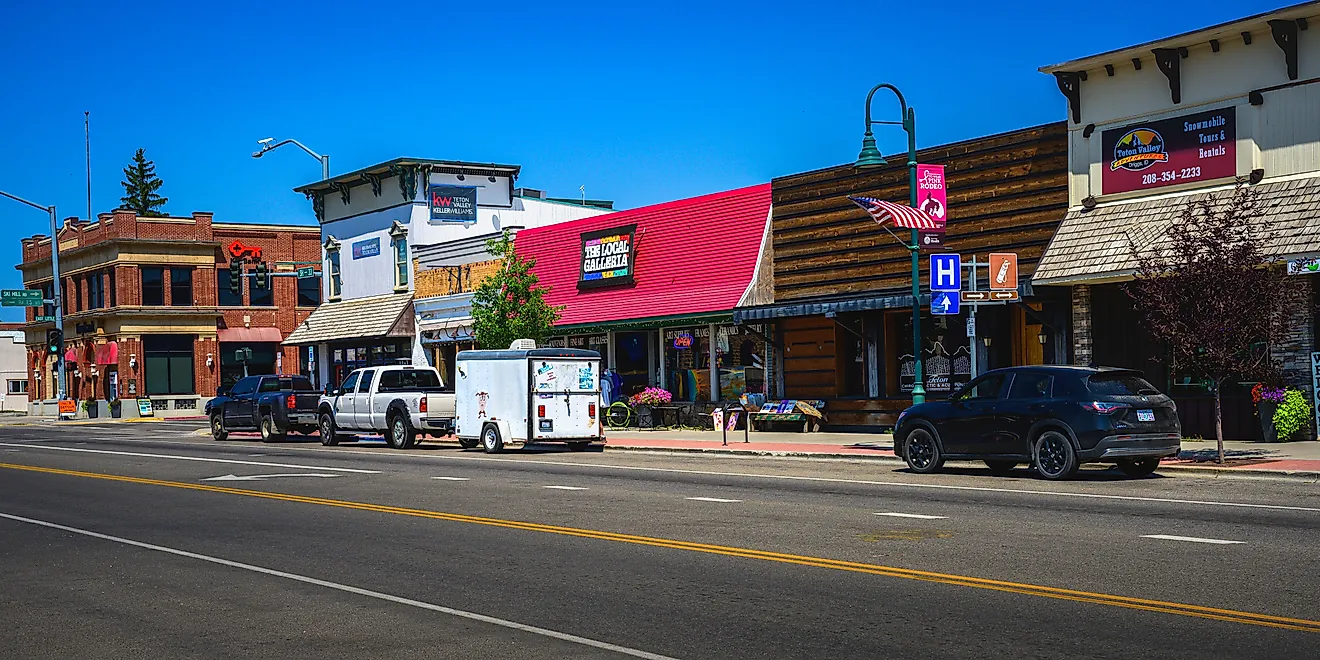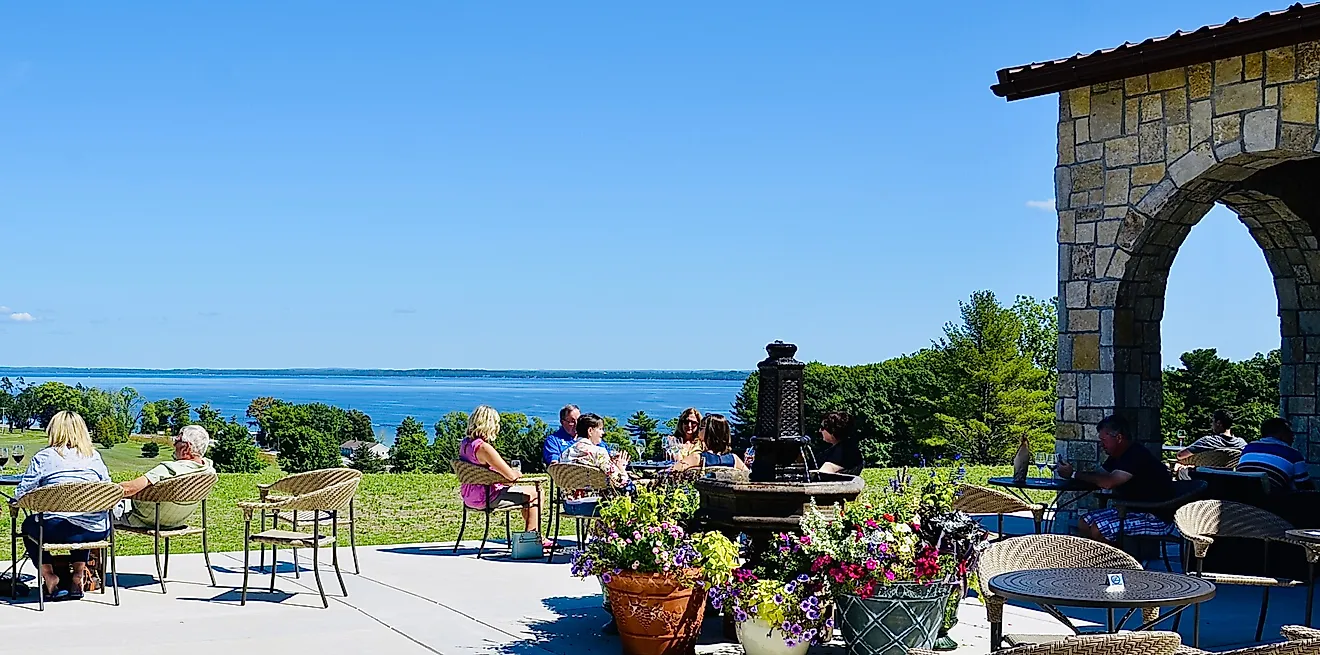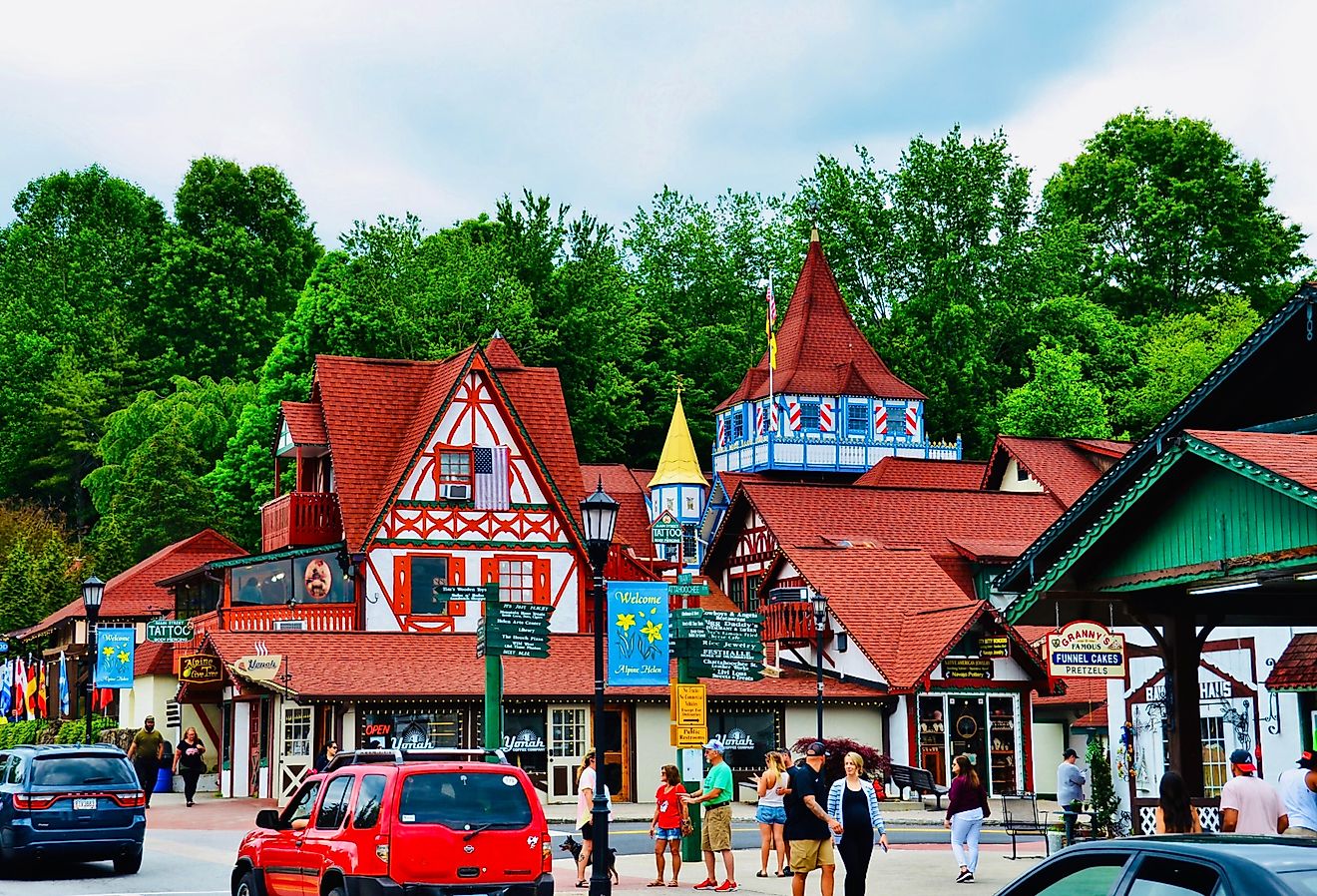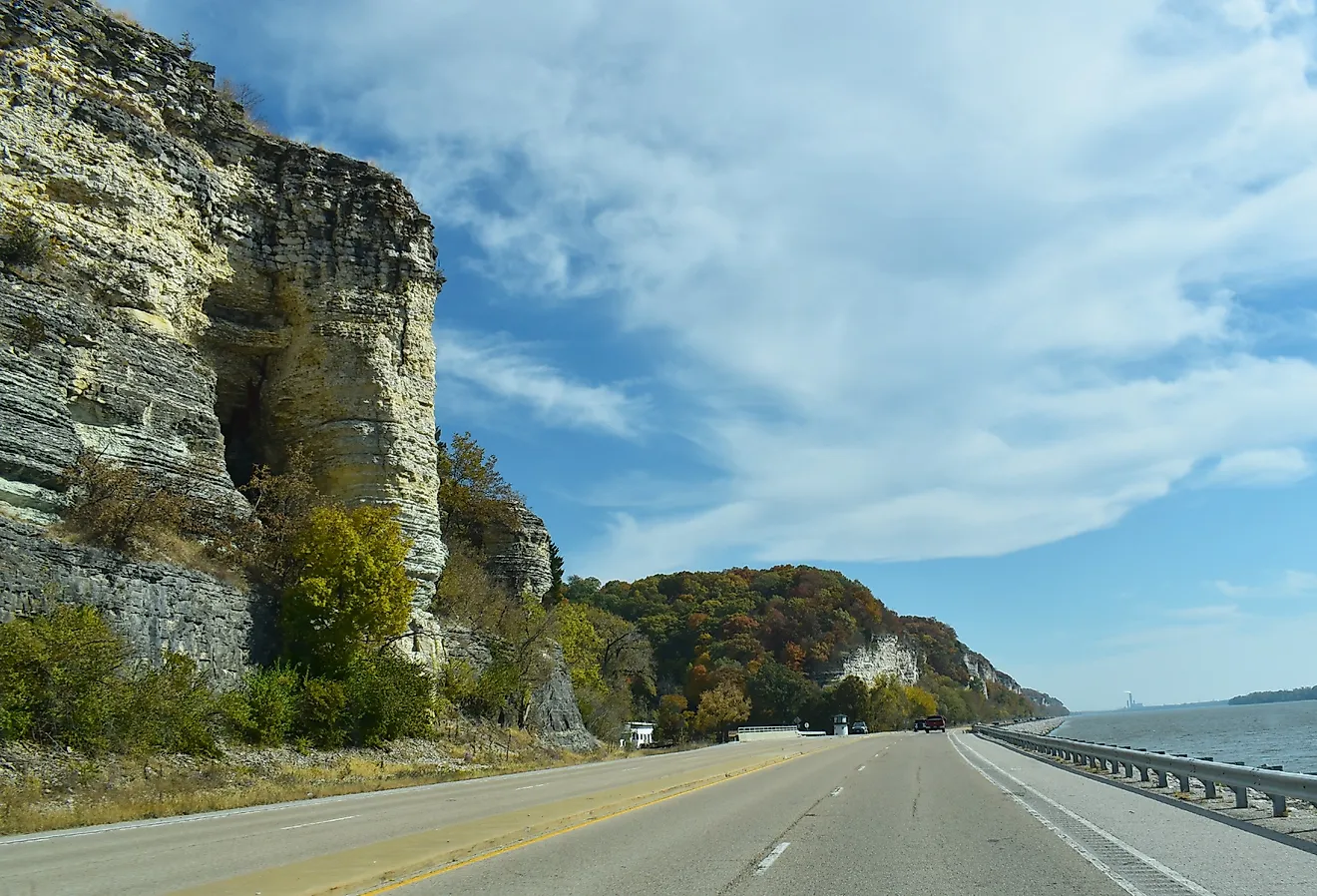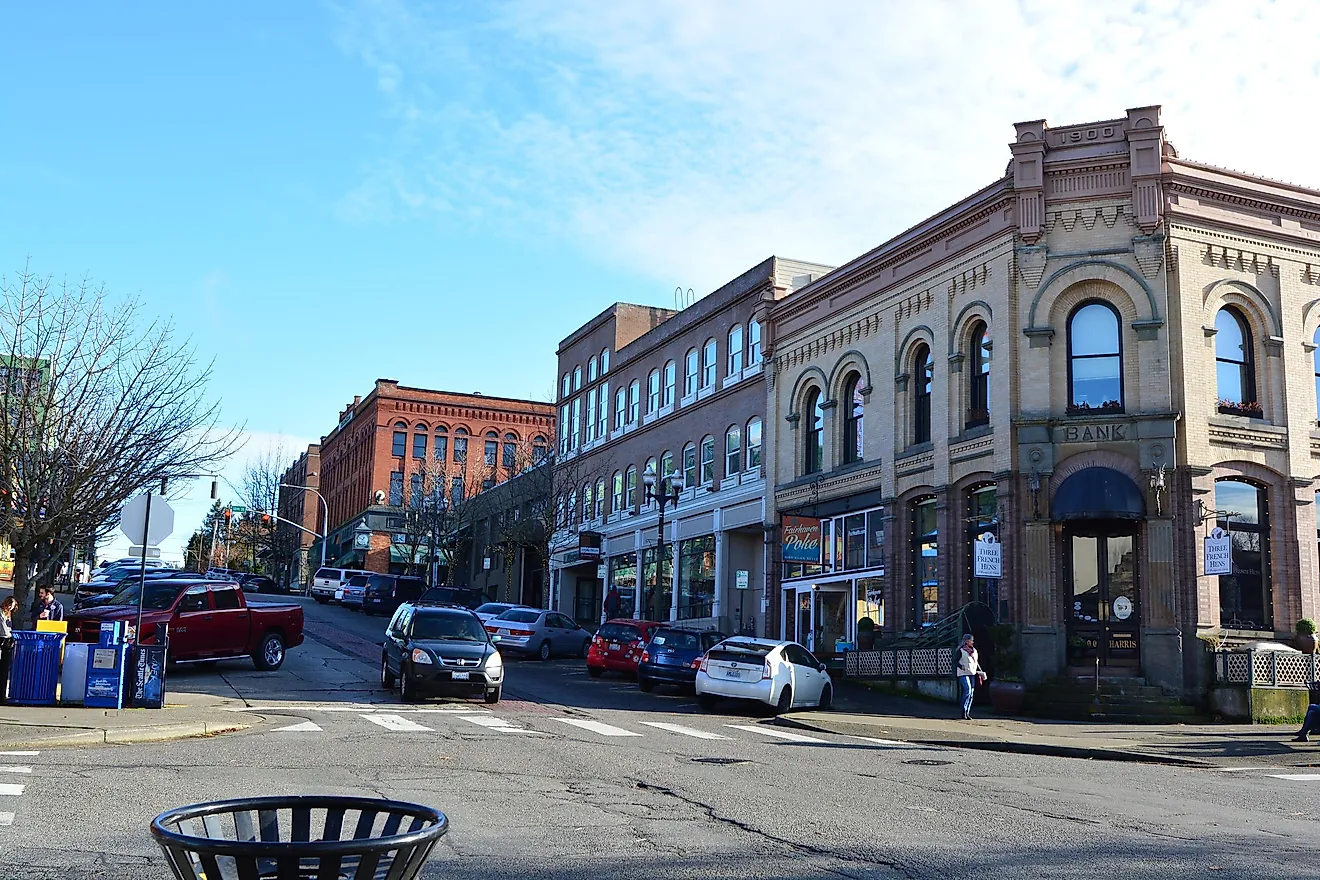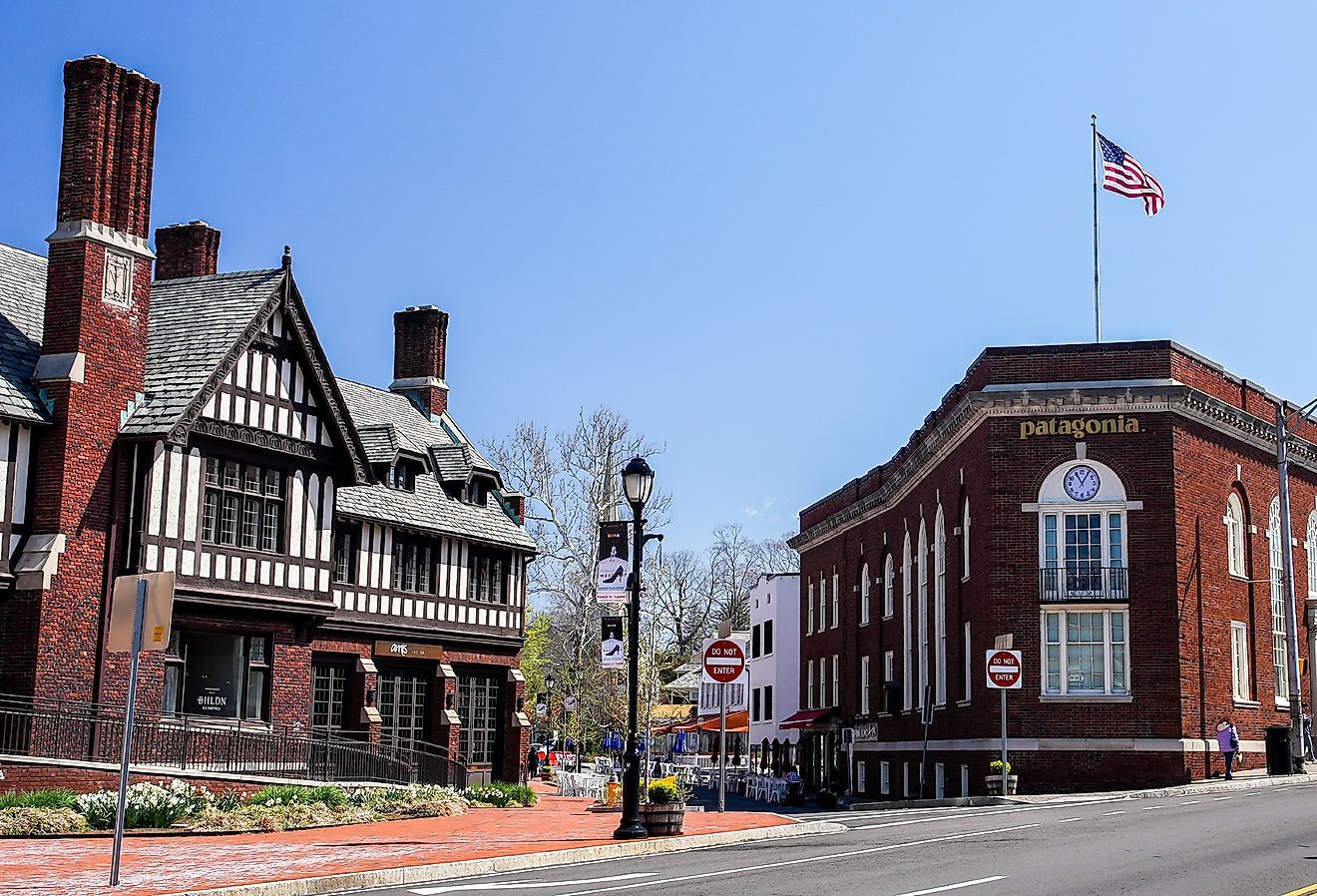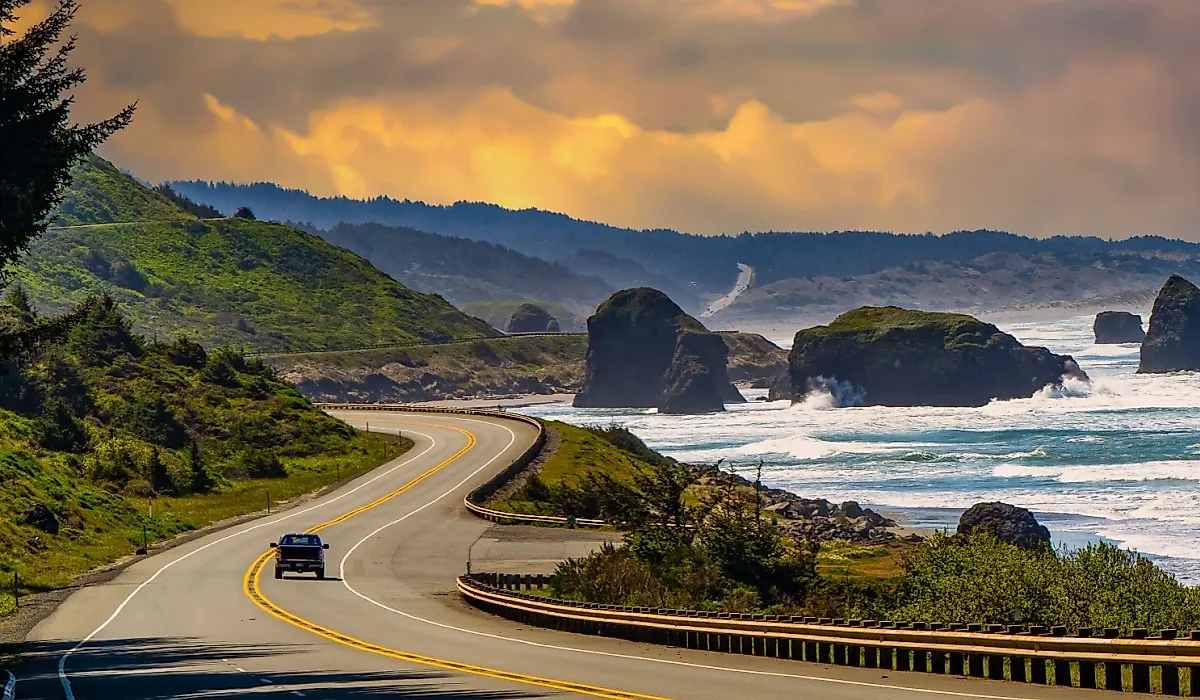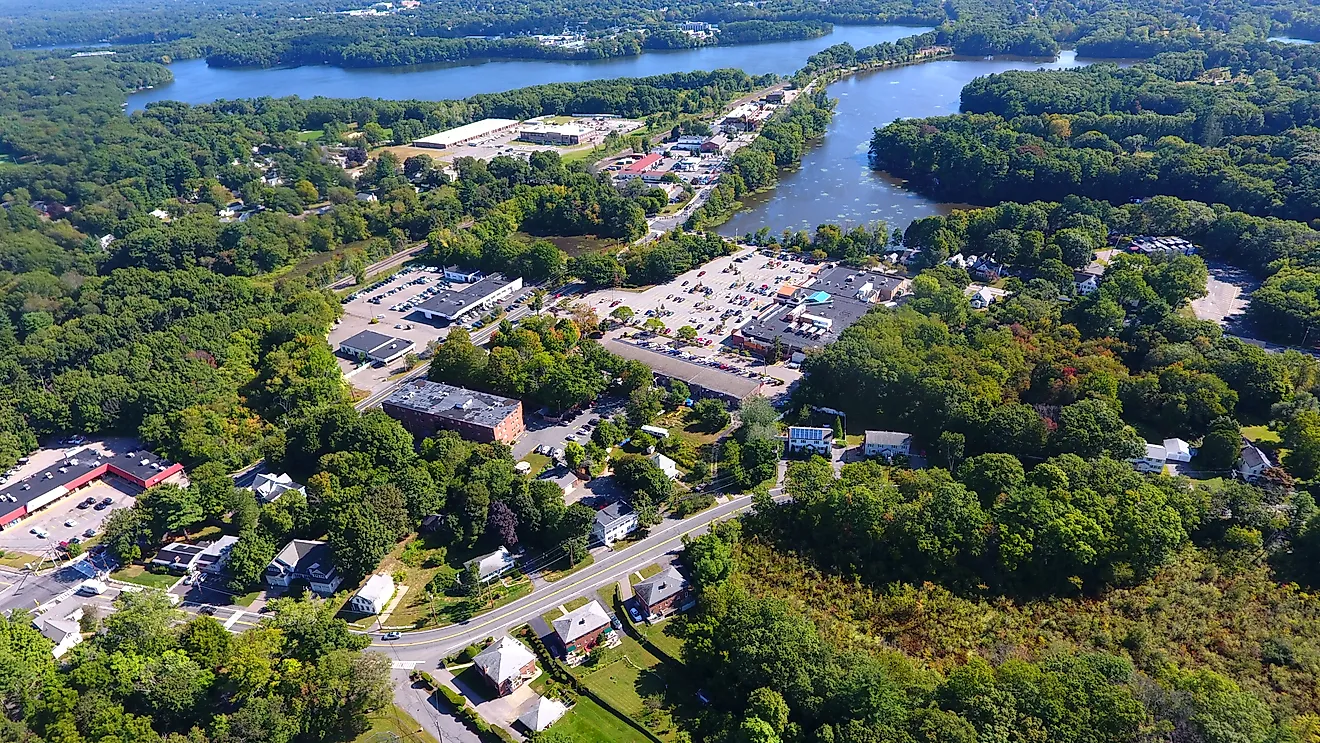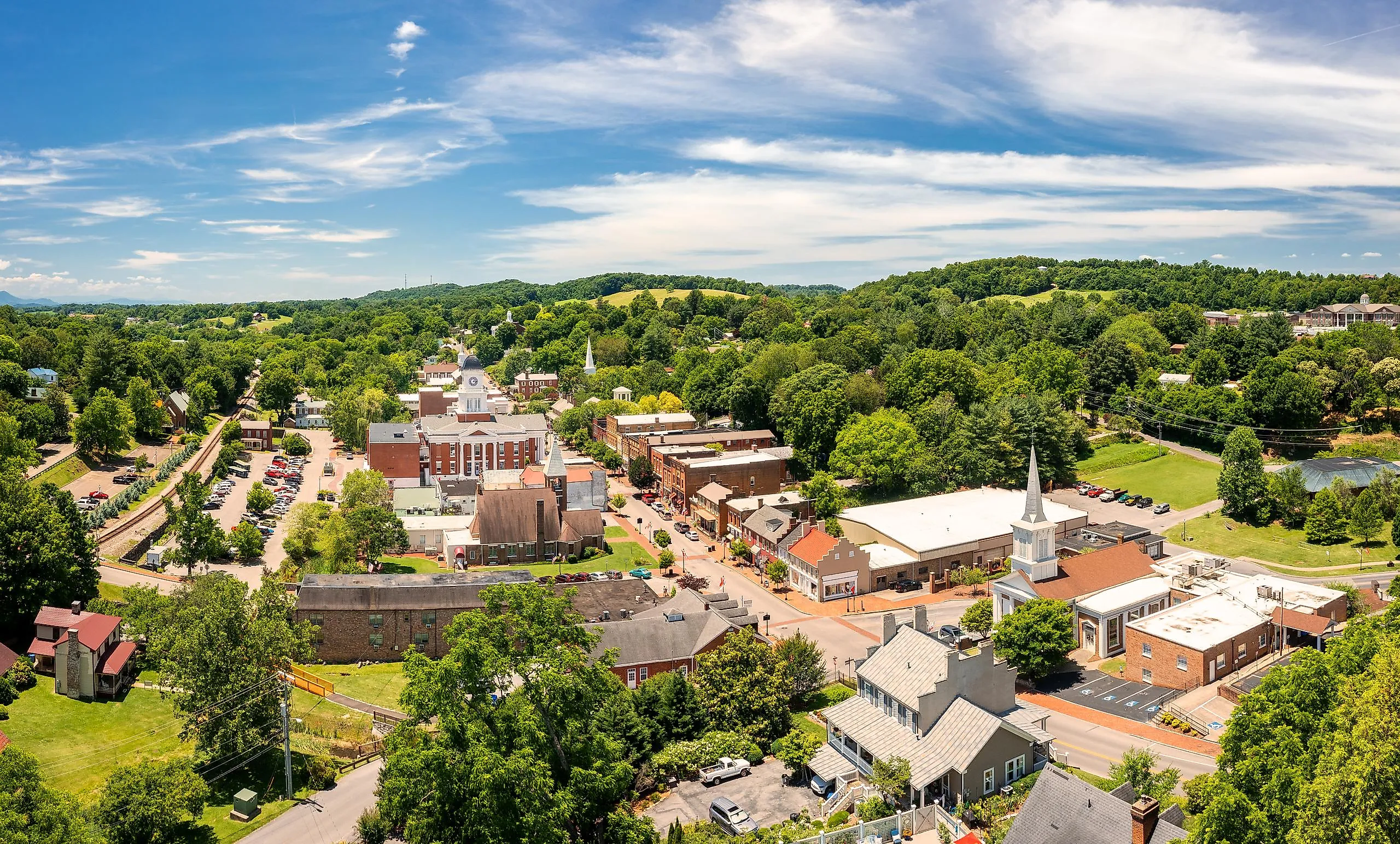
7 Best Towns In Tennessee For A Two-Day Recharge
Scientists who study stress recovery call it the “48‑Hour Reset,” the idea that two nights in the right environment can recalibrate heart rate, mood, and even circadian rhythm. Tennessee’s smallest towns, those pocket‑size settlements most travelers speed past, turn out to be nearly ideal laboratories for that reset. Each sits close to wild water or high ridges, each keeps a walkable main street, and none relies on neon to announce itself.
The seven communities that follow qualify because they compress everything required for a complete reboot, lodging, landscape, and local flavor, into a range you can cover between Friday sundown and Sunday brunch. Expect mill‑town breakfasts, porch‑front storytelling, and rivers cold enough to numb the week’s deadlines straight out of your bloodstream. Pick any one, wind the mental hourglass to 48 hours, and let the reset begin.
Gatlinburg
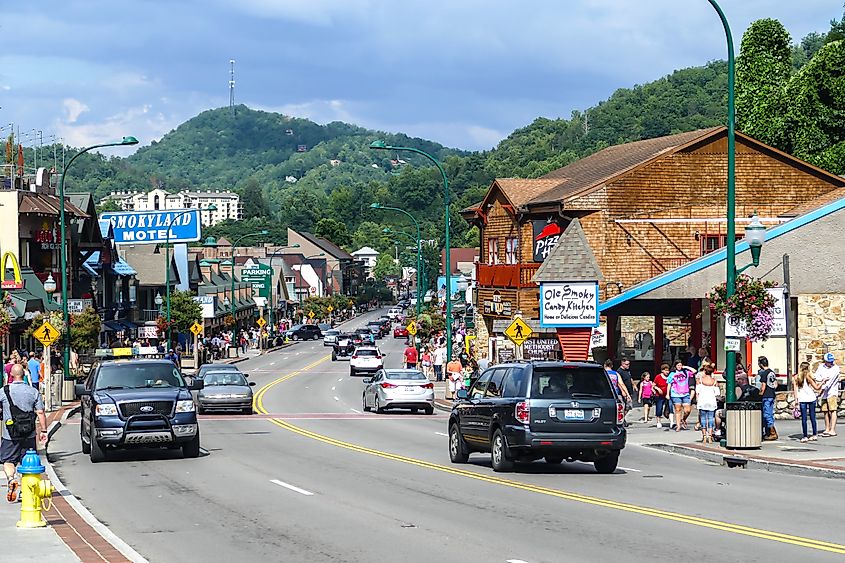
Gatlinburg’s entire downtown sits inside a narrow Appalachian valley, which is why it has no room to sprawl—and why almost every storefront, trailhead, and overlook is within walking distance. Originally a logging village, the town became a hub for artists and hikers after the Great Smoky Mountains National Park opened in 1934. Today, the Arrowmont School of Arts and Crafts still offers public exhibitions and rotating studio shows, just a block off the main Parkway. Few Tennessee towns combine direct park access, public art, and urban density this tightly.
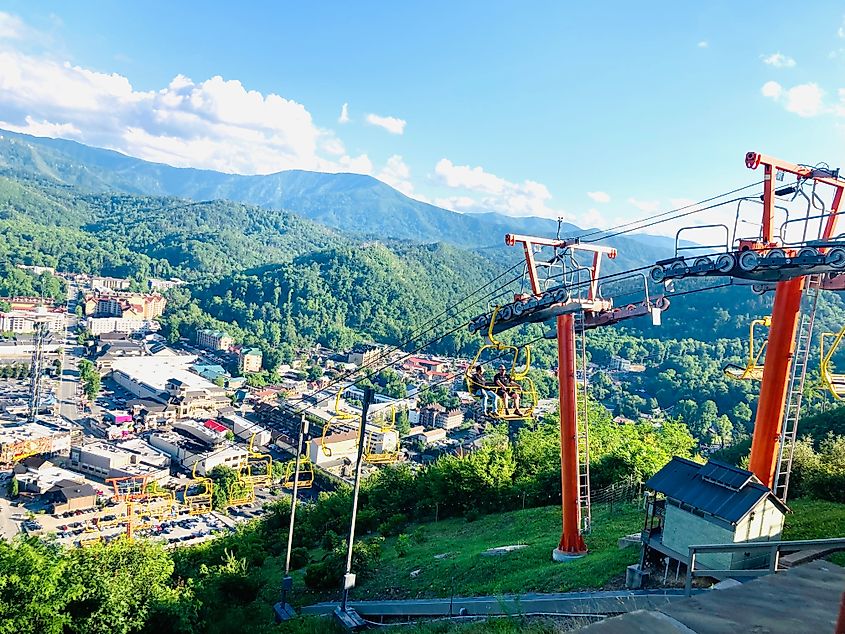
Visitors can take the SkyLift to Gatlinburg SkyPark, which connects to the longest pedestrian suspension bridge in North America. Nearby, the Sugarlands Visitor Center sits at the park entrance and offers short hikes to Cataract Falls and free naturalist-led programs. On the north end of town, the Gatlinburg Arts & Crafts Community includes over 100 studios, galleries, and working shops across an 8-mile loop. For food, Crockett’s Breakfast Camp serves cornmeal griddle cakes in a log cabin-style setting, while Cherokee Grill offers lodge-style dinners inlaid with stone and dark wood. The Park Vista DoubleTree, a round tower perched above downtown, includes private balconies, a central atrium pool, and consistent shuttle access to town.
Pigeon Forge
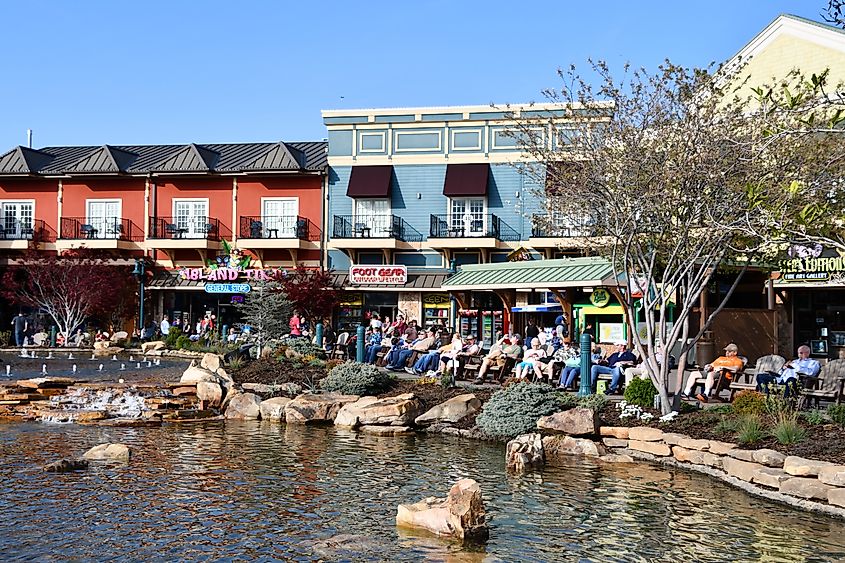
Pigeon Forge was named after an iron forge that once sat beside the Little Pigeon River, but its modern identity was shaped by a single family: the Partons. Dolly Parton’s Dollywood theme park opened here in 1986, transforming the town into a national entertainment corridor. Despite the traffic and neon, Pigeon Forge still operates like a small town. City Hall sits less than a mile from the LeConte Center and the town’s main park, Patriot Park, where a walking loop borders a quiet veterans’ memorial and the historic Old Mill, one of the oldest continually operating gristmills in the South.
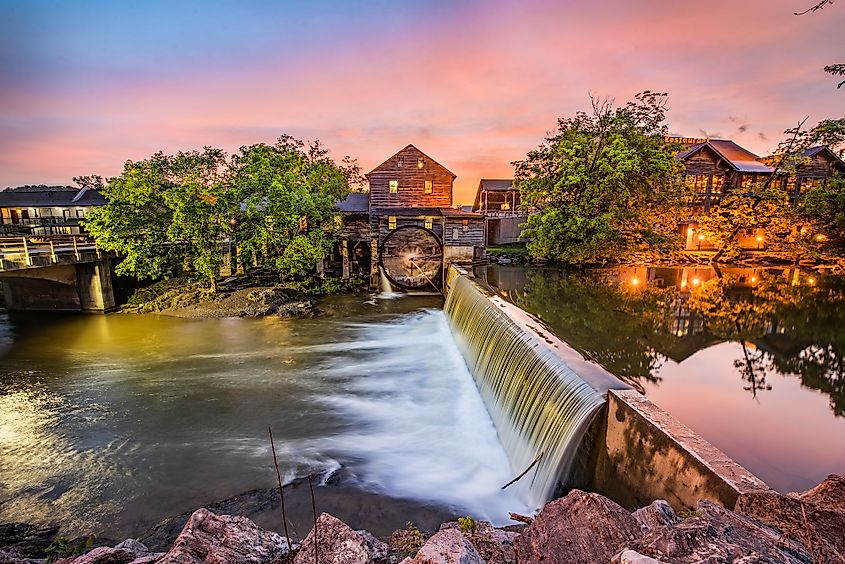
The Island in Pigeon Forge anchors the town’s central strip with its 200-foot observation wheel and synchronized music fountain. Inside the complex, Margaritaville Island Hotel includes river-facing suites and direct access to shops and restaurants. The Alcatraz East Crime Museum offers exhibits on FBI forensics, vintage getaway cars, and criminal psychology. On the quieter north end of town, Local Goat serves elk burgers and Tennessee whiskey cocktails in a building made from reclaimed barn wood. Just off the Parkway, The Old Mill Restaurant uses grain milled on-site for corn chowder, biscuits, and grits. Most visitors never leave the five-mile stretch—but don’t need to.
Townsend
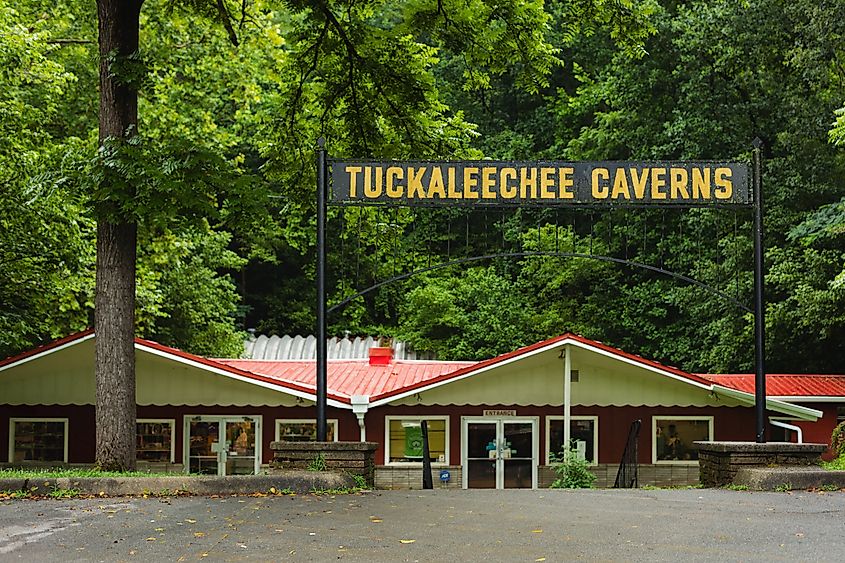
Townsend is the only town bordering Great Smoky Mountains National Park that bans neon signs. It has no strip malls, no go-karts, and no chain restaurants. Instead, it markets itself as “The Peaceful Side of the Smokies", and lives up to the name. The Little River runs through the center of town, and most businesses back directly up to it. On summer mornings, local outfitters like River Rat hand out inner tubes and drop guests upstream for a float back to town. The 9-mile Townsend Historical Trail runs parallel to the highway and can be walked or biked in segments past churches, farms, and old millstones.
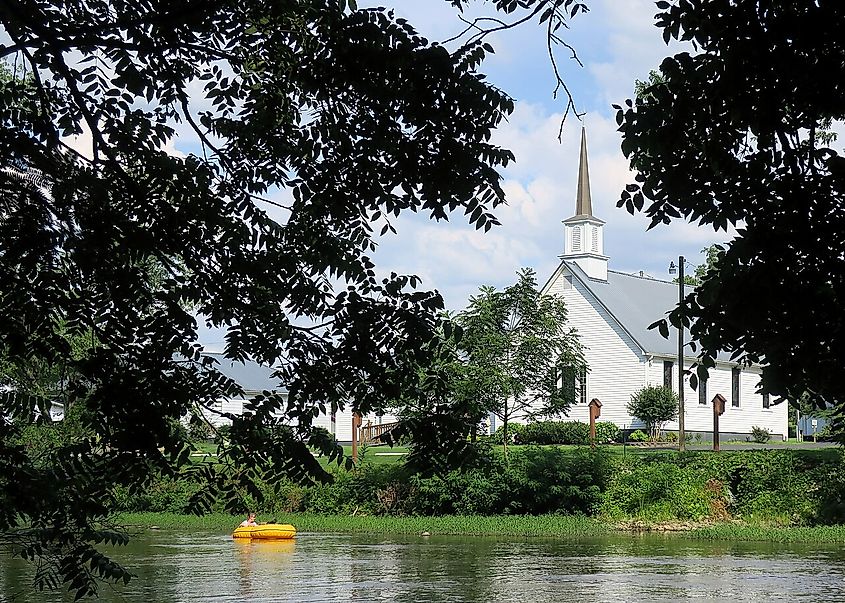
Tuckaleechee Caverns, discovered by Cherokee hunters and opened to the public in 1953, descend over 400 feet underground. Guided tours show calcite formations and a 200-foot subterranean waterfall. For regional history, the Great Smoky Mountains Heritage Center keeps a rotating collection of pioneer tools, textiles, and archaeological finds, including log cabins relocated from nearby Cades Cove. Apple Valley Café serves country breakfasts and fried pimento sandwiches next to a general store. Dancing Bear Lodge, located off Old Tuckaleechee Road, offers timber-frame cabins, onsite trail access, and the Appalachian Bistro, which sources trout, mushrooms, and beef within a 100-mile radius.
Jonesborough
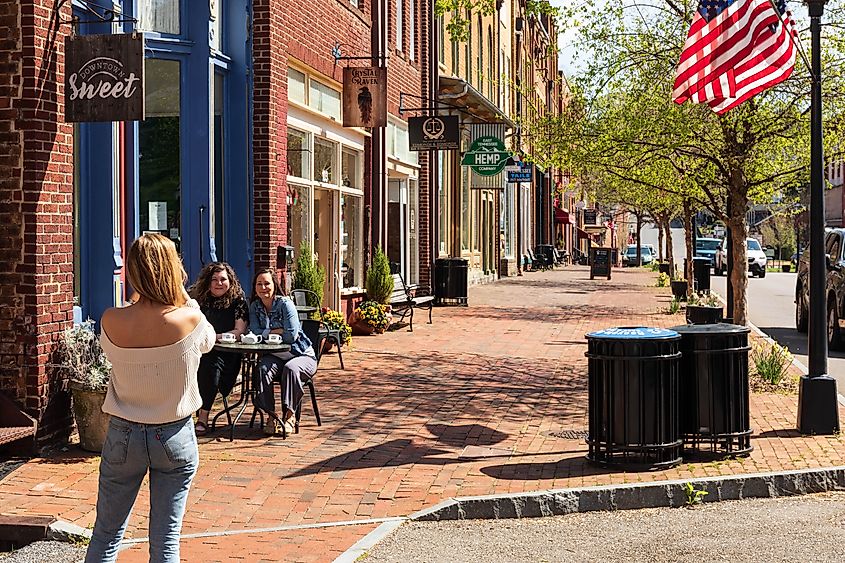
Jonesborough is the oldest town in Tennessee and still uses the original 1779 town charter. It became a center for abolitionist printing in the 1820s and now bills itself as the storytelling capital of the U.S. Every October, it hosts the National Storytelling Festival, which fills downtown with tents, stages, and spoken-word artists from around the world. The International Storytelling Center, located in a brick building across from the courthouse, offers weekday matinee performances from April through December. Chester Inn, the oldest commercial building in town, now operates as a state historic site and museum with free admission and seasonal tours.
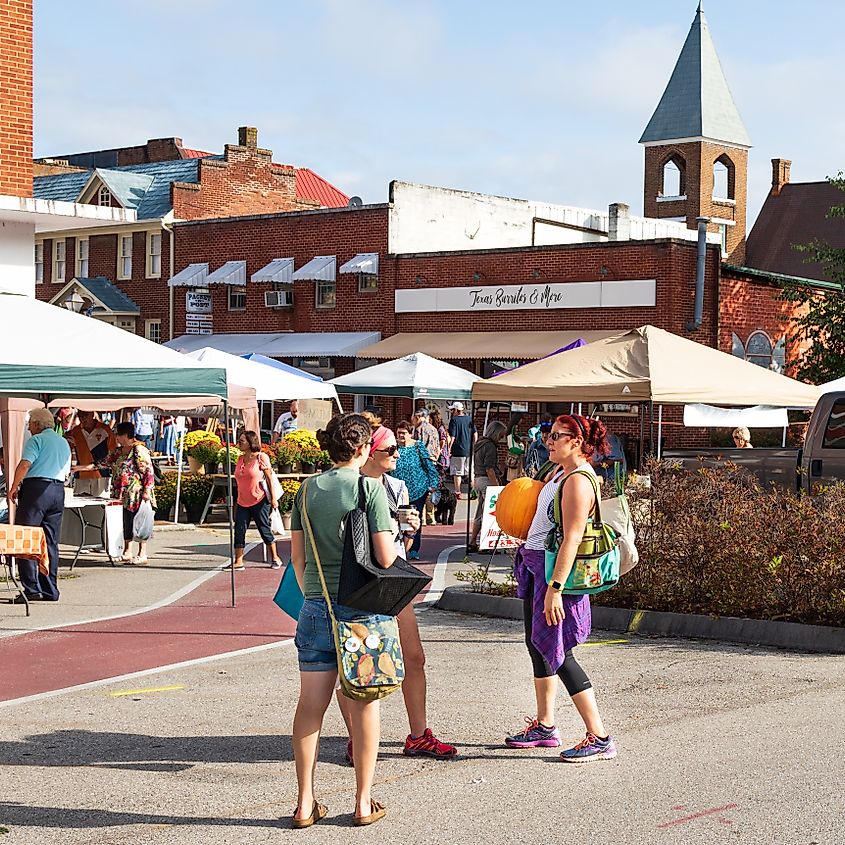
Main Street runs three blocks and includes independent shops, galleries, and cafes. McKinney Center, housed in a former school, offers public exhibits and cultural workshops. For lunch, Main Street Café offers trout cakes and scratch-made pies. The Lollipop Shop sells retro toys and Tennessee-made candy in the former Seaver family drugstore. Just behind the courthouse, Mill Spring Park includes a springhouse and short walking trail along a creek. The Historic Eureka Inn, built in 1797, includes nine guest rooms, a central courtyard, and original wavy-glass windows from the late 18th century.
Greeneville
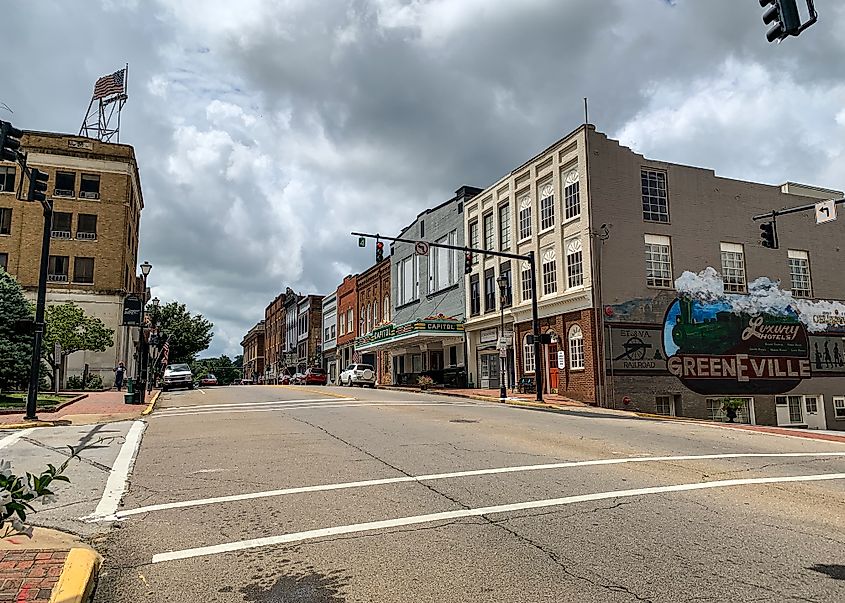
Greeneville is the only town in the U.S. where a sitting president lived and worked as a tailor. Andrew Johnson ran a tailoring business just off Depot Street before entering politics, and his preserved shop still stands as part of the Andrew Johnson National Historic Site. The site includes the tailor shop, Johnson’s two homes, and the hilltop National Cemetery where he’s buried beneath an obelisk. Greeneville’s downtown holds a dense cluster of 19th-century brick buildings, including the Dickson-Williams Mansion, which served as a Confederate headquarters and Union hospital during the Civil War.
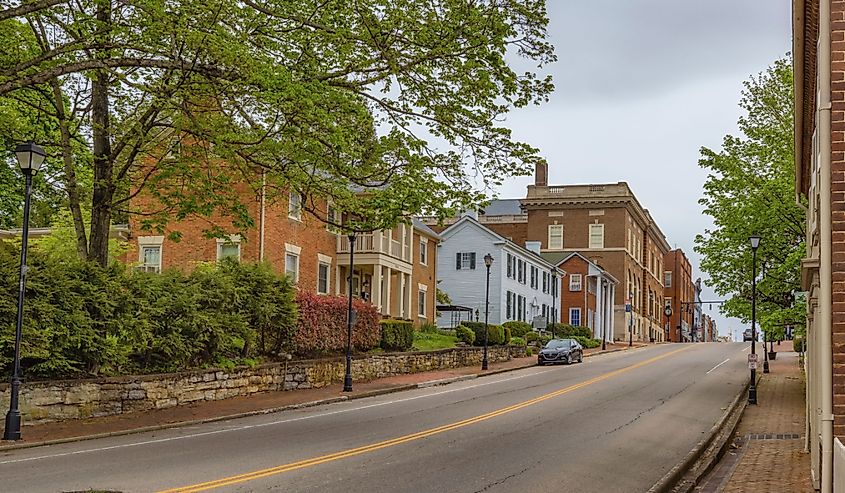
The Nathanael Greene Museum holds local artifacts and includes exhibits on frontier life, regional newspapers, and Greene County’s role in the State of Franklin movement. The town’s public green space, Hardin Park, includes a walking track, duck pond, and WWII-era stone pavilion. For food, Brumley’s at the General Morgan Inn serves trout cakes, bourbon steak, and seasonal pasta from a dining room lined with 1890s wood paneling. Tipton’s Café, a few blocks away, serves tomato gravy and biscuits starting at 7 a.m. The General Morgan Inn anchors downtown. The hotel includes 51 rooms, a rooftop terrace, and a lobby restored with period tile, pressed-tin ceilings, and framed tobacco tax stamps.
Cookeville
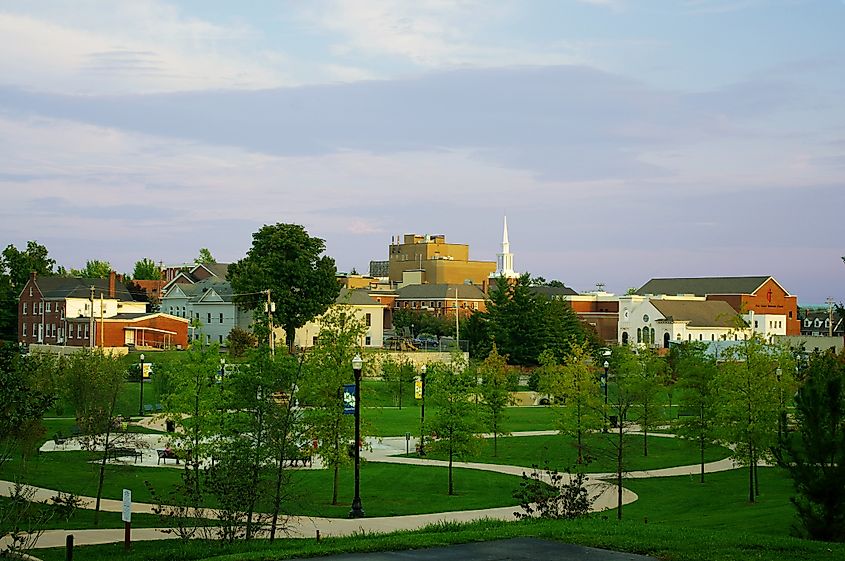
Cookeville sits at the intersection of three state parks and serves as the unofficial waterfall capital of Tennessee. It has more cascades within a 15-mile radius than any town in the state, including Burgess Falls, which drops 130 feet into a limestone gorge. Tennessee Tech University, founded in 1915, brings year-round lectures, music performances, and gallery shows to the town center. The Appalachian Center for Craft, a satellite of the university, sits on Center Hill Lake and offers studio access to glassblowing, weaving, and metalsmithing. Cookeville Depot Museum, located in the town’s original 1909 train station, includes restored rolling stock and a scale model of the Tennessee Central Railway.
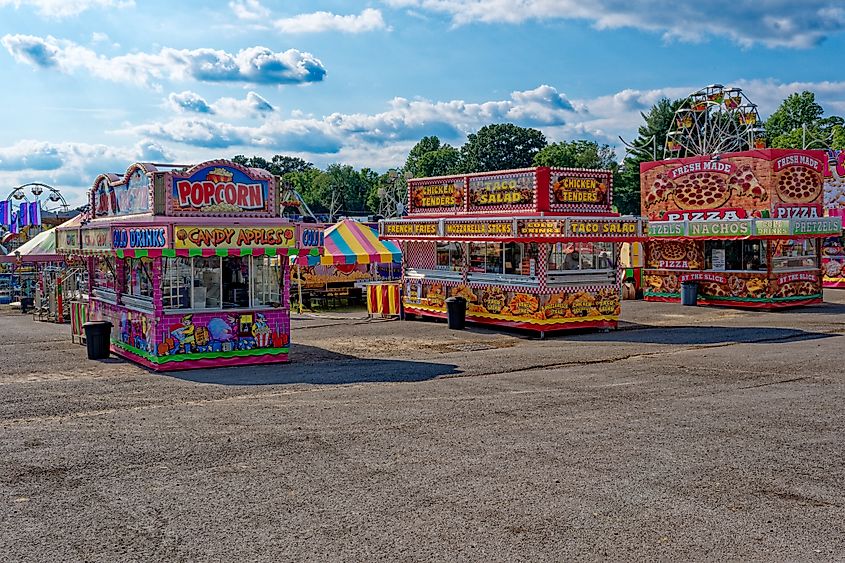
Dogwood Park in the heart of downtown has a tiered fountain, rose garden, and outdoor stage with summer performances. The WestSide district, built around the courthouse square, includes Red Silo Brewing Company and Cream City Ice Cream, which has operated since 1950. Poet’s Coffee on Broad Street serves espresso and lentil wraps in a brick-walled café with rotating exhibits from local artists. The Saltbox Inn & Stables sits just south of downtown and includes furnished suites in a white-frame farmhouse, an on-site equestrian barn, and landscaped grounds used for weddings and seasonal events.
Tellico Plains
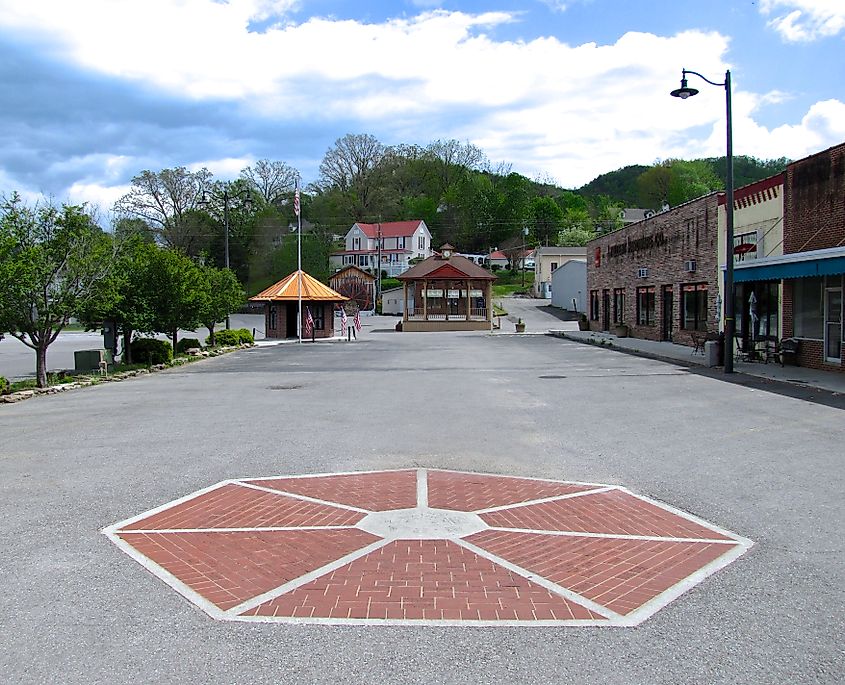
Tellico Plains sits at the base of the Unicoi Mountains and marks the western entrance to the Cherohala Skyway, a 43-mile scenic byway connecting Tennessee to North Carolina over elevations that reach 5,400 feet. The town was built on the site of Great Tellico, once one of the largest Cherokee towns in the region. Today, a small interpretive exhibit inside the Charles Hall Museum displays 19th-century Cherokee artifacts alongside logging tools, firearms, and local telegraph equipment. Most businesses in town operate out of converted service stations, cabins, or brick storefronts facing the Tellico River.
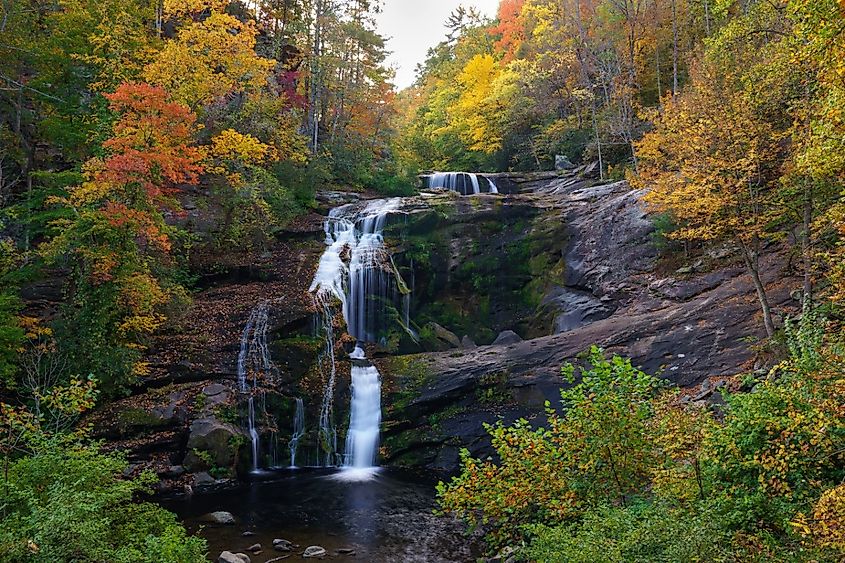
The Bald River Falls trailhead, 12 miles upstream, leads to a 90-foot cascade and connects to the larger Citico Creek Wilderness area. Tellico Grains Bakery, located in a restored Gulf gas station, serves sourdough pizzas, cheddar biscuits, and cranberry scones from a wood-fired oven. The Farmhouse Inn, located just outside the town center, includes three suites and a communal porch with mountain views. For gear and fly-fishing guides, Tellico Outfitters stocks local fly patterns and runs casting lessons near the bridge. Trout are stocked March through August. Most visitors use Tellico Plains as a pass-through to the Skyway. Those who stay overnight often don’t tell anyone.
Taken together, these seven communities demonstrate that Tennessee’s restorative power lies beyond its interstates. Each town fuses accessible adventure, locally driven dining, and lodging that keeps nature within earshot, allowing travelers to convert two simple nights into a physiological reset. Whether you crave waterfall spray, mountain-air panoramas, or a porch rocker beside Civil War brickwork, the Volunteer State’s smaller dots on the map deliver calm without sacrificing authenticity or convenience.
